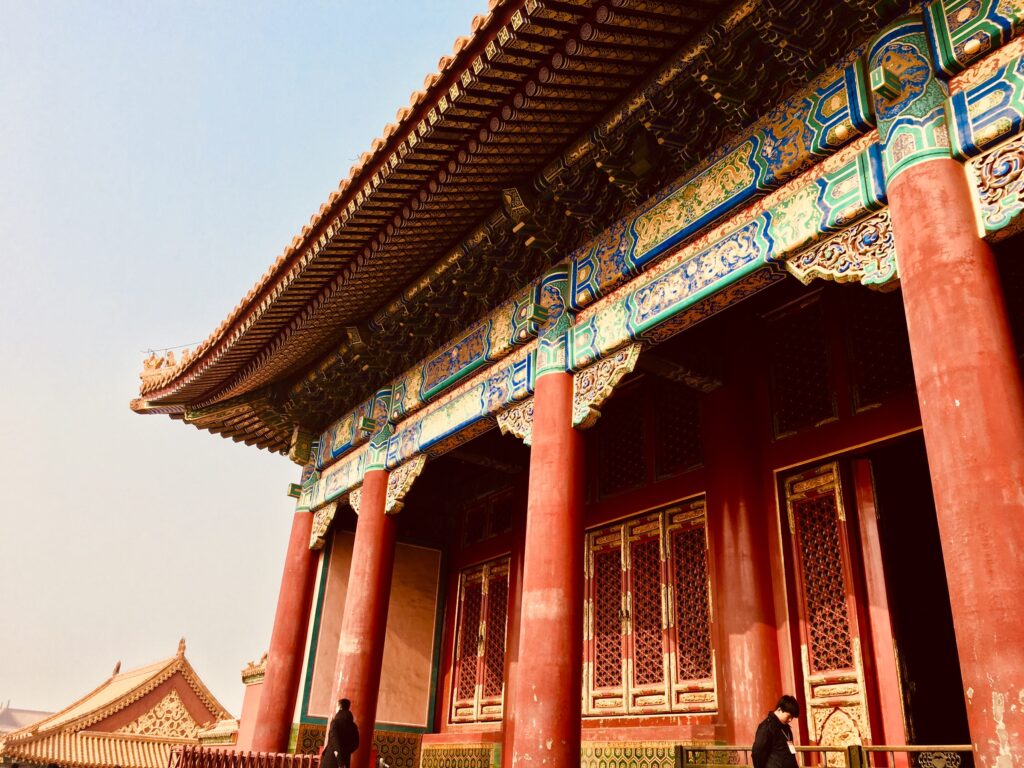Health Insurance in China
Living in China as an expat
Home to more than 1.3 billion people, China is the world’s most populous country and one of the largest in terms of size. Geographically, it spans five time zones, although the entire country is officially eight hours ahead of Greenwich Mean Time.
Living in China as an expat offers a unique blend of ancient traditions and modern conveniences. Major cities like Beijing, Shanghai, and Guangzhou provide a bustling lifestyle with excellent infrastructure, while smaller towns offer a more traditional and slower-paced experience. Expats often find China’s cost of living relatively affordable, although this can vary significantly by location.
Learning Mandarin can greatly enhance your experience, as English isn’t widely spoken outside urban centres. Adapting to local customs, such as dining etiquette and gift-giving traditions, can help build stronger relationships. The country’s rich culture, diverse cuisine, and extensive travel opportunities make it an exciting destination for expatriates.
Living in China as an expat

Healthcare and health insurance in China
The healthcare system in China can be difficult to understand – it is not offered to everyone and does not cover all costs. China’s health insurance system is primarily based on a public scheme that provides basic coverage for residents through the Urban Employee Basic Medical Insurance (UEBMI) and Urban-Rural Resident Basic Medical Insurance (URRBMI) programmes. These systems are funded by contributions from employers, employees, and the government, and provide access to public healthcare services. However, the coverage is often limited, and out-of-pocket expenses can still be high, particularly for advanced treatments or medications.
Whilst public healthcare is available to residents, expats often find it challenging to navigate due to language barriers and crowded facilities. The hospitals in cities typically provide a high standard of care and excellent facilities. However, remote rural locations can be hours or days away from a medical facility and may be of a lower standard. Expats should be prepared for extremely long waits and communication issues in public hospitals. Patients are also required to keep their own medical records whilst in hospital.
Private healthcare is a popular option for its shorter waiting times and higher-quality care, though it can be expensive without insurance – the price of care in a private hospital can often be double that of a public facility. Securing comprehensive health insurance is, therefore, essential to access private care and cover medical costs, which can quickly add up. Private medical institutions can be found in larger cities such as Beijing, Shanghai, and Guangzhou. These hospitals typically have staff that were trained in the west and who speak English well.
Health requirements for expats moving to China
It’s advised that expats who move to China are advised meet specific health requirements to ensure they stay safe. Whilst there are no mandatory vaccinations for entry into China, it is strongly recommended to be up-to-date on routine vaccinations, including measles, mumps, and rubella (MMR), tetanus, diphtheria, and pertussis (Tdap), polio, and influenza.
You may need additional vaccinations, depending on the region you’re moving to and what you’ll be doing there. Hepatitis A and B, typhoid, and rabies vaccines are commonly recommended, especially for those working in rural areas or engaging in outdoor activities. If you’re travelling to regions where malaria is present, preventive medication may also be needed.
Expats may also need to undergo a health check as part of the visa process, which typically will include blood tests, a chest X-ray, and a general medical examination. These checks will often be conducted at designated medical facilities in China. It can be a good idea to consult a healthcare provider or travel clinic before your move to China to discuss your specific health needs and any additional precautions.



Expat health insurance China
Having the right international health insurance is vital for expatriates living in China to ensure access to the best possible care when needed. Expatriate Group offers tailored health insurance plans specifically designed to meet the unique needs of expatriates.
These policies provide coverage for private medical facilities, including outpatient services, hospital stays, and emergency care, along with the option to include international coverage for those who frequently travel.
With our support, you can navigate the complexities of healthcare in China with confidence, knowing you’re protected wherever you go.
China visa requirements
Expats looking to live and work in China need to obtain the appropriate visa relevant to their purpose for moving. The most common visa for expats is the Z visa, which is specifically for individuals taking up employment in China. To qualify for this, you’ll need a job offer from a Chinese employer, who will provide you with a work permit and an invitation letter, which is required for the visa application. The process will typically involve background checks and medical examinations, and you’ll need to provide documents such as your passport, degree certificates, and a signed employment contract.
Once in China, the Z visa must be converted into a residence permit within 30 days of your arrival. This will allow you to live and work legally in the country for the duration of your employment.
Other visa options include the S1 visa for family members of Z visa holders and the X visa for students.
You must ensure you stay compliant with your visa regulations, as working on the wrong visa type can lead to fines or deportation. For a smooth process, it’s often helpful to work closely with your employer or a relocation specialist to navigate the requirements.
Applying for a Chinese visa
To apply for a Chinese, visa, you’ll need to submit your application at the Chinese Embassy or Consulate in your home country, or at an authorised visa application centre.
The documents you need to submit will vary depending on the type of visa you need, but generally you’ll need:
- A valid passport with at least six months’ validity and blank pages.
- A completed visa application form with a recent passport-sized photo.
- Relevant supporting documents, such as a work permit and invitation letter for a Z visa, or an enrolment letter for an X visa.
You’ll need to pay a fee for your visa, which will vary depending on the visa type and your nationality. Processing times can range from a few days to several weeks, so it’s best to apply in good time.



Working in China
China offers a range of opportunities for expats, with many people finding roles in industries such as education, technology, finance, manufacturing, and international trade. Teaching English is another popular option, and is especially in demand across schools, universities, and language centres. In major cities like Beijing, Shanghai, and Shenzhen, expats are also often employed in managerial, engineering, and IT roles, as well as positions with multinational corporations.
The working culture in China emphasises a respect for hierarchy, teamwork, and building strong relationships, which is often referred to as “guanxi.” Long working hours can be common, particularly in private companies, and flexibility may be limited compared to Western workplaces. Traits such as punctuality, professionalism, and showing initiative are highly valued, while understanding cultural norms, such as the importance of keeping face (i.e., reputation and dignity), can help build trust and enhance collaboration.
Employment laws in China
China’s employment laws are designed to protect workers’ rights and regulate employer-employee relationships. The Labour Law and the Labour Contract Law form the foundation of employment regulations, and require employers to provide written contracts outlining the key terms such as responsibilities, salary, and working hours. The standard working hours are set at 40 hours per week, and overtime is capped at three hours per day, with a maximum of 36 hours per month.
Employers are required to contribute to social insurance schemes, which will include pensions, medical insurance, unemployment insurance, maternity benefits, and workplace injury coverage. Expats who are working in China under a Z visa will generally be included in these schemes. If an employee is let go by the company, there are legal procedures to be followed, and severance pay will be provided in most cases.
It’s prohibited to discriminate based on gender, ethnicity, or disability. Workers are entitled to paid annual leave, public holidays, and maternity leave. Employment disputes are typically resolved through mediation, arbitration, or court proceedings.
Taxation for expats in China
Expats working in China will be subject to individual income tax (IIT) on their employment earnings. China uses a progressive tax system, with rates ranging from 3% to 45%, depending on your income brackets. Residents, defined as individuals who spend 183 days or more in China within a calendar year, will be taxed on their worldwide income. Non-residents will only be taxed on income earned within China.
The taxable income will include salaries, wages, bonuses, and benefits-in-kind, although some expats may qualify for exemptions on certain allowances, such as housing, education, and language training. Employers typically withhold IIT from employees’ salaries and give it directly to the tax authorities.
Expats should be aware that China has tax treaties with other countries, as this may help to avoid double taxation. Residents earning above a certain threshold or those with complex income sources will be required to file annual tax returns. It’s advised to consult a tax professional who is familiar with China’s system to ensure you stay compliant and make the most of any potential exemptions or deductions.